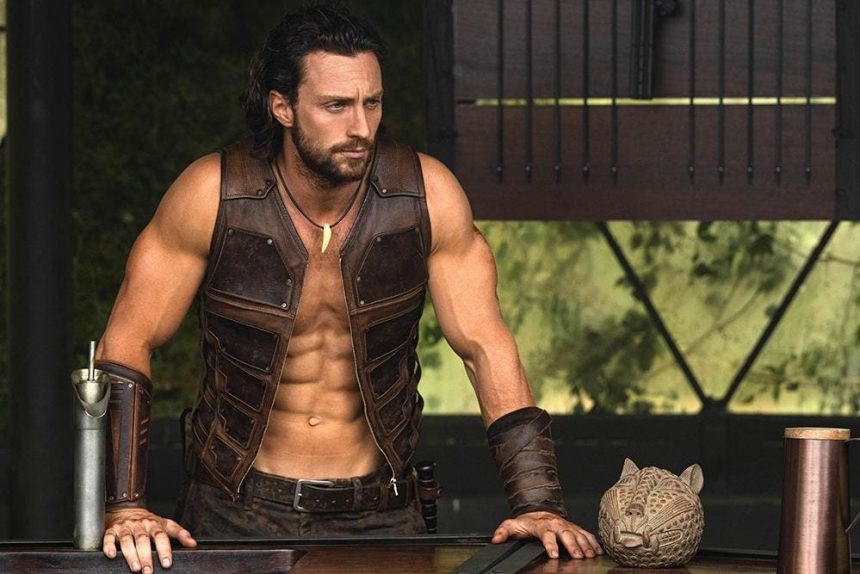The dismal box office performance of Sony’s Kraven the Hunter signals the definitive end of the studio’s attempt to build a Spider-Man-less Spider-Man cinematic universe. Grossing a mere $61 million globally, Kraven ranks among the lowest-grossing superhero films of all time, especially within the context of modern superhero blockbusters. This stark failure contrasts sharply with the initial success of Venom, which fueled Sony’s ambitions to create a universe around Spider-Man’s villains. While Venom earned a respectable $856 million globally, its sequels experienced diminishing returns, and other spin-offs like Morbius and Madame Web, while achieving modest box office success through ironic internet fame, failed to generate genuine enthusiasm. Kraven, however, lacking the so-bad-it’s-good appeal of its predecessors, simply flopped, forcing Sony to abandon its plans and refocus on more successful Spider-Man ventures.
The Kraven the Hunter debacle underscores the inherent challenges of building a cinematic universe around villains, especially in the absence of the central hero who defines them. While Venom’s initial success suggested a potential appetite for anti-hero narratives, the subsequent films failed to capture the same magic. The diminishing returns of the Venom sequels indicated a waning interest in the franchise, while Morbius and Madame Web, despite their meme-fueled viewership, struggled to achieve critical or commercial acclaim. Kraven’s failure highlights the difficulty of constructing compelling narratives centered on villains without the grounding presence of the hero they are meant to oppose. The absence of Spider-Man left a void in the narrative that these films struggled to fill, resulting in a disconnected and ultimately unsatisfying cinematic experience.
The unexpected failure of Kraven the Hunter is particularly perplexing considering the talent involved. Starring Aaron Taylor-Johnson, a highly regarded actor coming off the success of Nosferatu, and directed by J.C. Chandor, known for critically acclaimed films like Triple Frontier and Margin Call, the film seemed poised for success. Both Taylor-Johnson and Chandor actively promoted the film, urging audiences to disregard preconceived notions and give it a chance. Despite their efforts, Kraven failed to resonate with audiences, receiving a dismal 16% rating from critics. While audience scores were significantly higher, the low turnout ultimately sealed the film’s fate. This disparity between critical reception and audience scores, coupled with the film’s poor box office performance, suggests a fundamental disconnect between the creative vision and audience expectations.
Sony’s initial strategy for its Spider-Man-less universe appeared to revolve around assembling a Sinister Six-style team of villains to eventually confront a version of Spider-Man. The specifics of this plan remained ambiguous, with rumors circulating about the potential return of Andrew Garfield or even the integration of Tom Holland’s Spider-Man into the Sony universe. However, Kraven’s failure has effectively scuttled these plans. Sony has now publicly shifted its focus back to the core Spider-Man franchise, prioritizing the development of Spider-Man 4 and further installments in the highly successful Into the Spider-Verse series. This strategic realignment acknowledges the limitations of a villain-centric universe and reinforces the enduring appeal of Spider-Man himself.
The demise of Sony’s Spider-Man-less universe, culminating in the Kraven the Hunter debacle, serves as a cautionary tale for studios attempting to build cinematic universes around secondary characters. While the success of Venom initially hinted at the viability of such an approach, the subsequent decline of the franchise, coupled with the failures of Morbius, Madame Web, and now Kraven, demonstrates the inherent challenges of creating compelling narratives without a strong central figure. The absence of Spider-Man ultimately undermined the foundation of this cinematic universe, leaving audiences with a disjointed and ultimately unsatisfying experience.
The shift in Sony’s strategy, focusing on the core Spider-Man franchise and the critically acclaimed Into the Spider-Verse series, represents a pragmatic response to the Kraven disaster. By returning to the proven success of Spider-Man himself, Sony acknowledges the importance of a strong central character to anchor a cinematic universe. The Into the Spider-Verse films, with their innovative animation and multiverse storytelling, offer a fresh and engaging take on the Spider-Man mythos, demonstrating that the character’s appeal can extend beyond live-action adaptations. This strategic realignment reflects a renewed focus on quality storytelling and a recognition of the limitations of a villain-centric approach.



